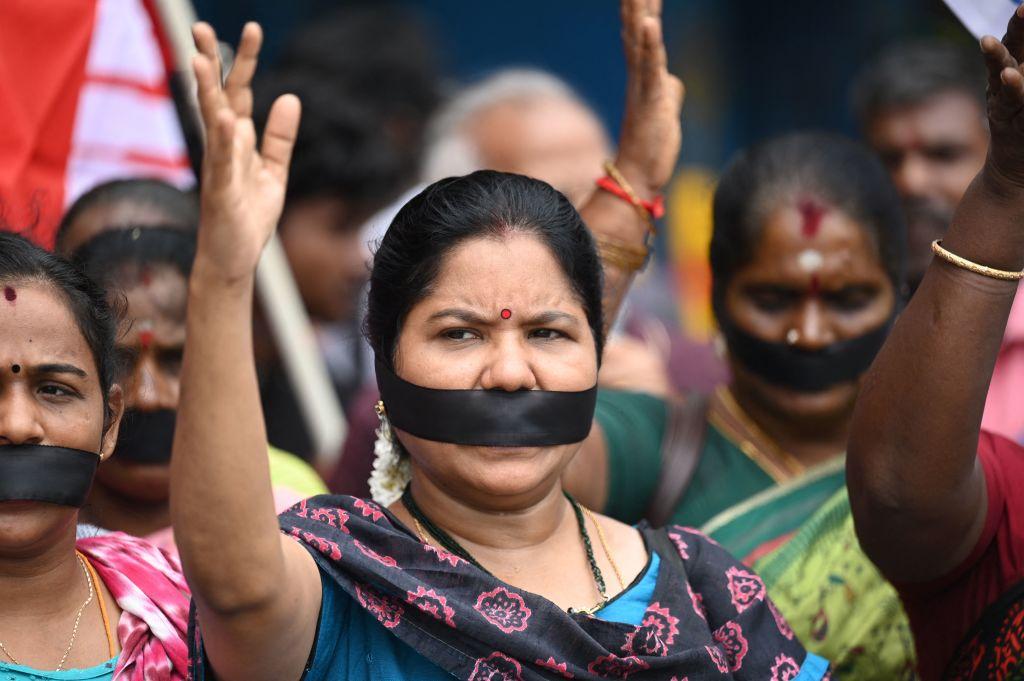
Planet A
UNESCO has delayed its decision to place the Great Barrier Reef on a list of ‘in danger’ World Heritage sites despite remaining under ‘serious threat’ according to a recent report. Climate-change-related threats such as storms and rising ocean temperatures, as well as damage from port and fisheries activities, continue to damage the reef. Overwhelming scientific evidence suggests that the Great Barrier Reef is at risk of suffering another mass coral bleaching event similar to the one in the summer of 2019–20.
UNESCO said in its report that the decision to delay was due to Australia’s recent positive steps to protect the reef. For example, the federal and Queensland governments have established an independent panel of experts to guide management and investment efforts and have implemented a revised climate target. However, the UN body warned that only further ‘urgent and sustained action’ can prevent an ‘in danger’ classification. The reef’s status will be considered again at the World Heritage Committee’s annual meeting in September.
Democracy watch
While much international attention has focused on the arrest of Pakistan’s former prime minister Imran Khan this week after his detention in a separate case in May sparked nationwide protests, ethnic and sectarian violence in neighbouring India has flown under the radar.
On 31 July, riots erupted in the northern state of Haryana after right-wing Hindu groups led a religious procession through a Muslim-majority district, Nuh. Several vehicles were torched and around 2,500 people who sought to participate in the procession were forced to take shelter in a nearby temple. Authorities have responded by imposing an internet ban in Nuh, razing illegal structures in the district and arresting more than 200 people. The next day, religious clashes spread closer to India’s national capital region. A mosque was set ablaze in Gurugram, one of India’s thriving tech hubs, leaving a Muslim cleric dead.
The sectarian rioting follows months of unrelated ethnic violence in India’s northeastern state of Manipur, where around 150 people have been killed and thousands displaced. The conflict is rooted in longstanding ethnic rivalry between the majority Meitei and minority Kuki tribes. In March, the Manipur high court passed an order directing the state government to grant the Meitei community ‘scheduled tribal status’, which would provide economic benefits, land ownership rights and government job quotas similar to those afforded to the minority Kuki community. The decision exacerbated historical Kuki grievances about state-led discrimination and further encroachment of their rights.
Protests spiralled into uncontrollable violence, with Kuki villages burnt to the ground and the systemic use of rape and sexual violence as a weapon. After a video emerged of two women being sexually assaulted and paraded naked through the streets of Manipur by dozens of men, Prime Minister Narendra Modi finally broke his silence on the issue. However, his statement condemned the brutal incident in isolation, without addressing the ethnic context or why such a horrific crime of sexual violence was committed.
A peace committee set up by the central government has failed to achieve a ceasefire and Kuki demands for a separate state have been reignited.
Information operations
The US military has trialled an AI tool dubbed ‘DataRobot’ that can help commanders identify deepfakes or misleading information and discern fact from fiction in the field. DataRobot is intended to counter adversarial propaganda campaigns and showed promising results during testing at the first-of-its-kind Cyber Quest exercise held in July. The trials build on the success of previous attempts to detect bots operating in the Indo-Pacific during a Pacific Sentry exercise in Hawaii. Options for safely storing the massive amounts of data the tool uses to detect fake news are, however, still being considered.
The West was reminded of how critical quickly debunking misinformation is to modern defence when a manipulated video of Ukrainian President Volodymyr Zelensky calling on his soldiers to surrender was posted on various channels online. Kyiv had anticipated such an event and was able to act within minutes to counter the erroneous claims. China has also scaled up efforts to disseminate disinformation, including by employing AI tools that impersonate international media outlets. As information operations and malicious uses of generative AI technology proliferate, they are presenting ever-increasing risks to state security that countries are struggling to manage.
Follow the money
China lifted anti-dumping and anti-subsidy tariffs on Australian barley imports last week, marking a significant step towards normalising trade relations between the two countries. The decision, facilitated by the World Trade Organization, follows a protracted three-year trade dispute over China’s imposition of 80.5% tariffs on Australian barley, which led to a substantial decline in what had been a $1.5 billion annual market.
Trade tensions with China have eased since the Australian Labor Party’s election win in May last year, which facilitated the resumption of Chinese purchases of Australian coal and timber. The removal of these tariffs will open market opportunities for Australian barley, potentially reducing competition from Russian suppliers.
Despite this positive development, the Australian government is still chafing against China’s tariffs on Australian wine, some of which are at a staggering 218%. Australia’s trade minister, Don Farrell, has said the barley tariff resolution could serve as a template for addressing other restrictions.